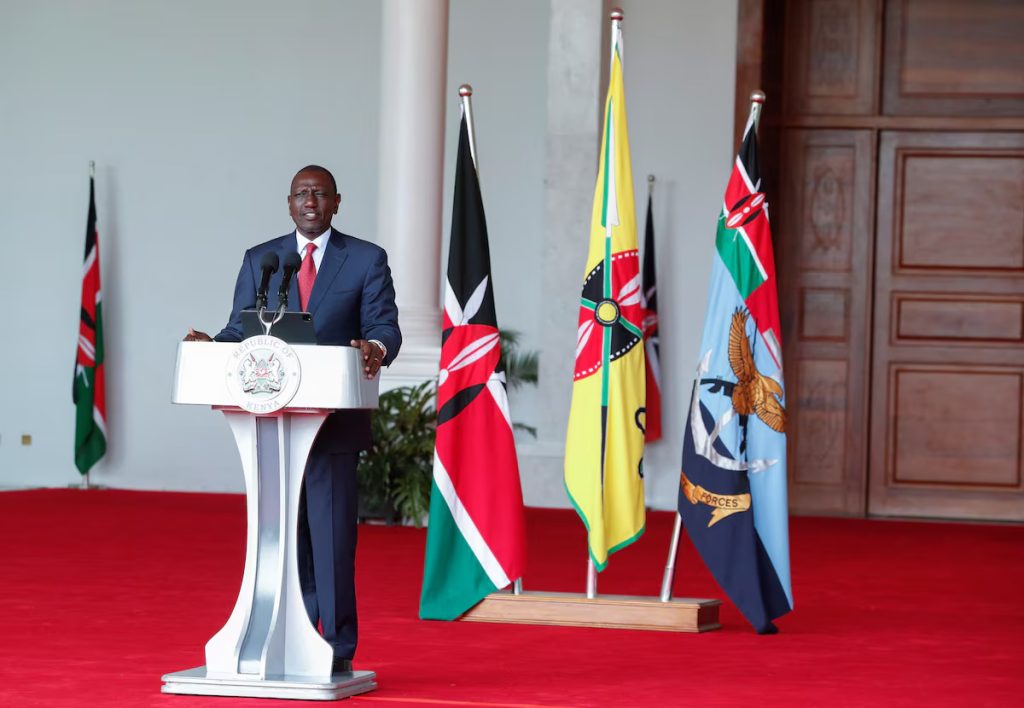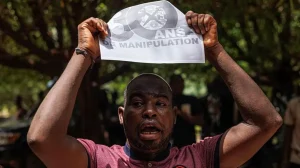
Kenyan President William Ruto took decisive action on Thursday, July 11, 2024 by dismissing his entire cabinet, except for the foreign minister, in response to widespread protests that have rocked the country.
The protests, led by youth groups, initially began against proposed tax increases but escalated into violent clashes with police, resulting in the deaths of at least 39 people last month. Demonstrators even briefly stormed parliament, prompting Ruto to scrap the tax hikes.
In a televised address to the nation, Ruto announced his intention to engage in extensive consultations across various sectors and political groups to form a broad-based government. He assured the public that additional measures would be announced soon. Notably, he excluded the office of the deputy president from the cabinet reshuffle.
The sweeping changes were welcomed by Kenyans who have been demanding reforms, including veteran anti-corruption activist John Githongo, who emphasized the need for the new ministers to address corruption and government excesses.
Ruto has faced challenges balancing the demands of international lenders like the International Monetary Fund (IMF) to reduce deficits while also addressing the economic hardships faced by Kenyans due to the high cost of living. Last week, he proposed a combination of spending cuts and increased borrowing to bridge a significant budget shortfall caused by the abandoned tax hikes.
However, analysts anticipate that Kenya may miss IMF targets due to the tax rollback, even though the country’s immediate debt obligations are manageable. The budget deficit for the current fiscal year is projected at 4.6% of GDP.
Community activist Ojango Omondi from the Social Justice Centres Working Group in Nairobi viewed the cabinet dismissals as a step towards justice, but stressed the importance of ensuring that any new appointments uphold constitutional principles and the rule of law.
The aftermath of Ruto’s cabinet overhaul will likely be closely watched as Kenyans and observers assess the impact on governance and economic policies moving forward.








